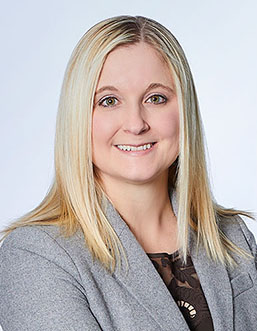Owners of certain property (collectively “the Lambs”) filed a professional negligence action against Alan B. Styles Land Surveying, PLLC and its owner (“Surveyor”) resulting from Surveyor’s performance of a survey of a tract of land adjoining the Lambs’ real property which incorrectly identified the boundary line between the properties. Specifically, the survey results, prepared by Surveyor for the Lambs’ neighbors, incorrectly depicted a portion of the Lambs’ property as being part of the neighbors’ tract. As a result of the survey, the Lambs filed suit against their neighbors for quiet title and trespass, with judgment eventually entered in the Lambs’ favor and against the neighbors. The Lambs, in turn, sought to recover the cost of the quiet title action from the Surveyor, arguing his negligent performance of the survey necessitated the quiet title litigation.
Surveyor moved to dismiss the Lambs’ professional negligence claims, arguing a surveyor did not owe any duty of care to adjoining property owners who had not contracted with the surveyor or who did not rely on the survey in any way. The trial court agreed with Surveyor and dismissed the Lambs’ suit. Upon the Lambs’ appeal, the Court of Appeals of North Carolina affirmed the trial court’s dismissal.
The Court held the Lambs’ claim of professional negligence required them to establish the following essential elements: (1) the nature of the defendant’s profession; (2) the defendant’s duty to conform to a certain standard of conduct; and (3) a breach of the duty proximately caused
injury to the plaintiffs.” (quoting Associated Indus. Contr’rs, Inc. v. Fleming Eng’g, Inc., 162 N.C. App. 405, 413, 590 S.E.2d 866, 872 (2004)). At issue was whether a surveyor owed a duty of care to adjoining landowners when performing a survey and recording plats, with the Court noting the question was a matter of first impression in North Carolina. The Lambs argued the Court should establish a rule which “holds licensed surveyors accountable for damages that foreseeably result from” their conduct due to statutes expanding civil liability for surveyors and setting forth specific standards of care as well as general negligence principles.
For instance, the Lambs relied on N.C.G.S. § 1-47(6), which imposes a ten-year statute of limitations rather than the three-year statute of limitations applicable to other professional negligence claims, to argue a heightened standard of care should apply to Surveyor. The Court, however, rejected the Lambs’ argument, finding a statute of limitations is merely a procedural bar affecting only the remedy and not the right to recover and could not be used to create or expand surveyors’ duty of care. Additionally, the Court rejected the Lambs’ reliance on state regulatory provisions governing surveyors, finding not every statute or regulation purporting to have generalized safety implications may be interpreted to automatically result in tort liability for its violation. Because the intent of the surveyor regulations cited by the Lambs was not to create a private right of action or standard of care for surveyors, “but rather to express the public policy considerations the Board will consider in promulgating and enforcing its rules,” it could not be used to create a private right of action by the Lambs against Surveyor.
Furthermore, the Court concluded general negligence principles could not support a cause of action by the Lambs against Surveyor. In support, the Court found cases involving whether a professional owes a duty of care to a third party are generally based on negligent misrepresentation, which requires justifiable reliance to the third party’s detriment by the person who owed the relying party a duty of care. The Court extended the approach set forth in the Restatement (Second) of Torts § 552 (1977) and used by the North Carolina Supreme Court in the context of accountant malpractice to land surveyors. See Raritan River Steel Co. v. Cherry, Bekaert & Holland, 322 N.C. 200, 205, 367 S.E.2d 609, 612 (1988). Like accountants, the Court found “surveyors have little control over the distribution of their surveys once provided to their client,” with surveyors specifically contracting with individual clients to perform their surveys. Applying the Restatement approach to the facts of the case, the Court held the Lambs failed to sufficiently allege they constitute a class of persons whose benefit and guidance Surveyor intended to supply the survey, or that Surveyor knew the neighbors intended to supply the survey to the Lambs, or that the Surveyor or the neighbors intended the Lambs to rely on the survey in a transaction. Without the requisite negligent misrepresentation, the Lambs’ claims could not succeed on general negligence principles.
Finally, the Court disposed of the Lambs’ argument that “[a] third party who might be affected by negligence of a surveyor can still bring a suit against the surveyor for pecuniary harm.” However, the Court held this theory supports a viable claim only when a “working relationship” or “community of interests” exists between a plaintiff and defendant, which requires reliance in the absence of a contractual relationship. Because no contractual relationship existed between the Lambs and the Surveyor and the Lambs did not allege they relied on the Surveyor’s defective survey, the Lambs failed to establish a duty of care owed by the Surveyor to them.
In sum, in Lamb, the Court of Appeals of North Carolina held a surveyor owed no duty of care to adjoining landowners with whom the surveyor had no contractual relationship and whose survey the landowners did not rely on, citing established principles of professional negligence commonly applied to accountants and lawyers.

